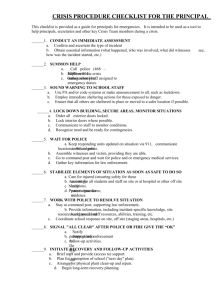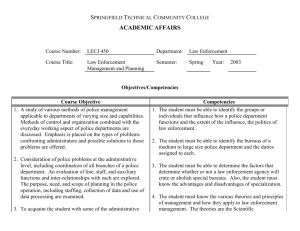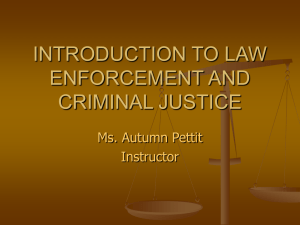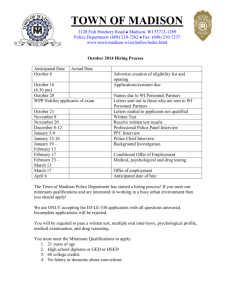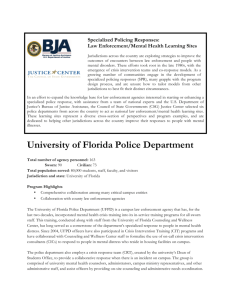Law Enforcement History: Key Terms & Definitions
advertisement
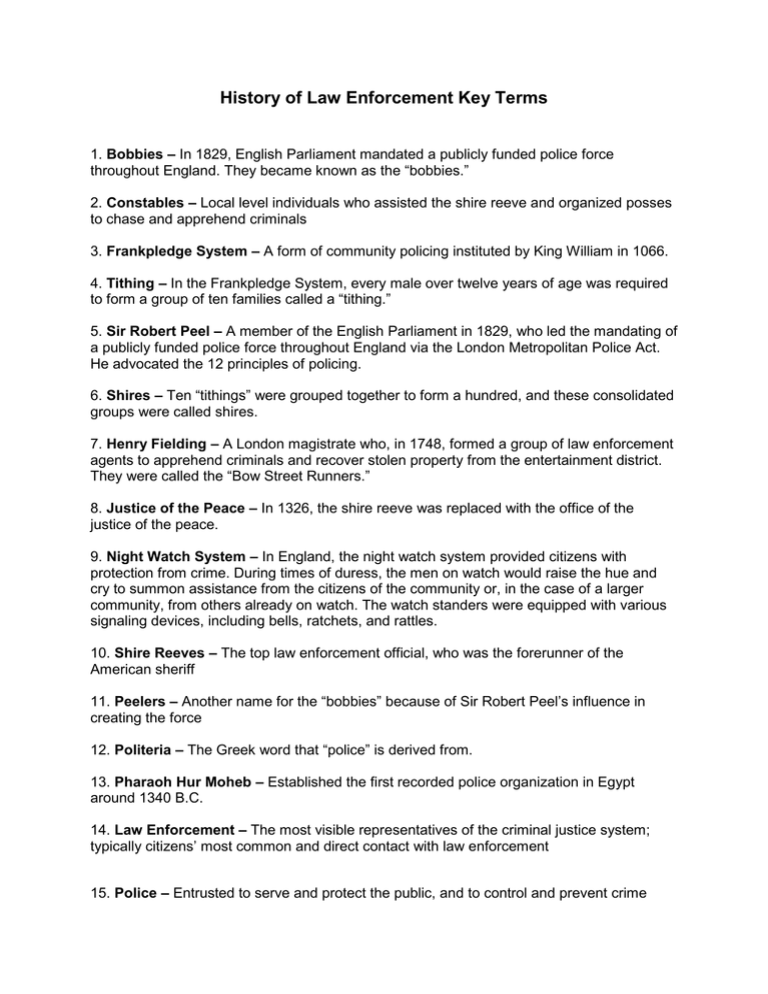
History of Law Enforcement Key Terms 1. Bobbies – In 1829, English Parliament mandated a publicly funded police force throughout England. They became known as the “bobbies.” 2. Constables – Local level individuals who assisted the shire reeve and organized posses to chase and apprehend criminals 3. Frankpledge System – A form of community policing instituted by King William in 1066. 4. Tithing – In the Frankpledge System, every male over twelve years of age was required to form a group of ten families called a “tithing.” 5. Sir Robert Peel – A member of the English Parliament in 1829, who led the mandating of a publicly funded police force throughout England via the London Metropolitan Police Act. He advocated the 12 principles of policing. 6. Shires – Ten “tithings” were grouped together to form a hundred, and these consolidated groups were called shires. 7. Henry Fielding – A London magistrate who, in 1748, formed a group of law enforcement agents to apprehend criminals and recover stolen property from the entertainment district. They were called the “Bow Street Runners.” 8. Justice of the Peace – In 1326, the shire reeve was replaced with the office of the justice of the peace. 9. Night Watch System – In England, the night watch system provided citizens with protection from crime. During times of duress, the men on watch would raise the hue and cry to summon assistance from the citizens of the community or, in the case of a larger community, from others already on watch. The watch standers were equipped with various signaling devices, including bells, ratchets, and rattles. 10. Shire Reeves – The top law enforcement official, who was the forerunner of the American sheriff 11. Peelers – Another name for the “bobbies” because of Sir Robert Peel’s influence in creating the force 12. Politeria – The Greek word that “police” is derived from. 13. Pharaoh Hur Moheb – Established the first recorded police organization in Egypt around 1340 B.C. 14. Law Enforcement – The most visible representatives of the criminal justice system; typically citizens’ most common and direct contact with law enforcement 15. Police – Entrusted to serve and protect the public, and to control and prevent crime 16. Political Era – 1840’s to 1920’s: the period when police agencies were first established to provide a unified law enforcement force in the major American cities 17. Reform Era – Wanted to take law enforcement out of politics, introduce modern technology to make law enforcement more efficient, and establish police administrative boards that were responsible for appointing police administrators and controlling police affairs 18. Professional Era – 1920’s to 1970’s: the period when there was a call for the establishment of measures to assist law enforcement agencies to improve their effectiveness and become more professional 19. Community Model Era – 1970’s to the present: the period when it was advocated for law enforcement to move away from the crime-fighting focus of law enforcement towards a greater emphasis on maintaining order and providing service to the community 20. August Vollmer – Was known as the most famous police reformer in the early part of the twentieth century. He believed the police should be a professional force. 21. Spoils – A system that used political power to hire supporters and fire those considered disloyal. This led to a period of incompetent, corrupt, and disliked police force. 22. O.W. Wilson – A student of Vollmer’s who advocated for law enforcement agencies to employ technological advances, such as motorized patrols, effective radio communications, and rapid response to aid effective crime fighting

